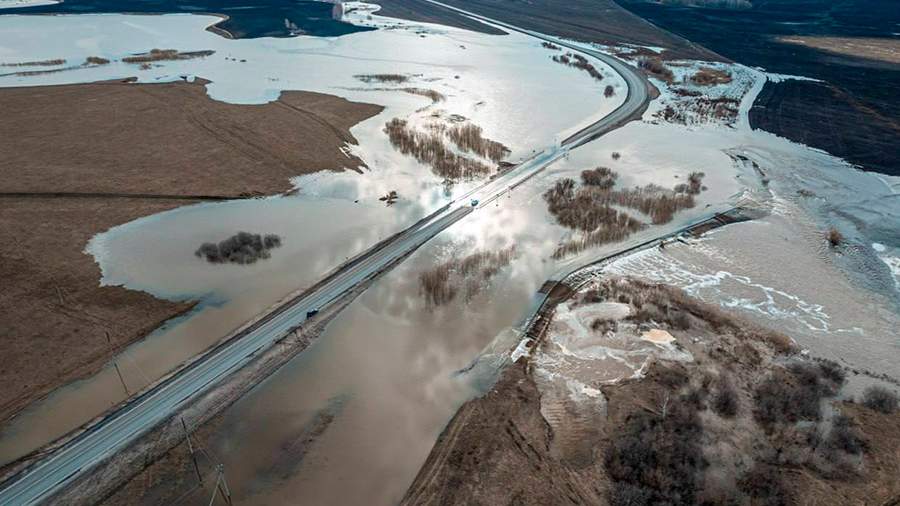Russia has many other options than an attack on Ukraine. However, that cannot be ruled out either.
14.1. 19:15
Diplomacy the week baptized as a super week has ended uncomfortably for Russia.
Negotiations with the United States, NATO and the Organization for Security and Cooperation in Europe did not lead to the desired outcome for Russia. NATO did not promise not to expand and did not withdraw its promise to Ukraine that Ukraine could apply for membership.
Deputy Minister of Foreign Affairs of Russia Alexandr Gruško said on Wednesday that Russia will use military means if diplomatic means are not enough. Other Russian representatives have used the term “military technology”.
What can these means be?
Russian army soldiers and armored vehicles in exercises in the Rostov region in early December.
Armed attack on Ukraine
Russia has assembled equipment and about 100,000 troops near the Ukrainian border.
The strength of the Ukrainian armed forces is about 255,000 in active service and 900,000 reservists. The Russian armed forces employ about 1.1 million people and reserve about two million citizens.
Ukraine has strengthened its armed forces since Russia took over Crimea in 2014. The United States has also assisted Ukraine in many ways, including by providing anti-Javelin anti-tank missiles. Total United States has supported Ukraine’s armed forces worth more than two billion euros from 2014 onwards.
In Ukraine, there is also a will to defend the country: the Kiev Sociological Institute in December survey according to a third of Ukrainians would be ready for armed resistance if Russia invades Ukraine.
There is no certainty as to whether the military force that Russia has accumulated so far on the borders of Ukraine for a full war of aggression is not enough.
“They’re still gathering troops,” said the director of the think tank CNA’s Russia research program Michael Kofman to the American news channel for NBC.
A pro-Russian protester carried the Russian flag at Zaporizhia City Hall in March 2014 shortly after Russia had conquered Crimea from Ukraine.
Takeover of eastern Ukraine
This the option might be the easiest for Russia. There have been Russian troops in Donetsk and Luhansk since 2014, although Russia does not admit it.
Russia might be able to take over eastern Ukraine with little effort. It could also try to annex eastern Ukraine with a diplomatic announcement. There is also support for joining Russia in eastern Ukraine.
If the use of military force were low or non-existent, the U.S. threshold for imposing new sanctions on Russia could be higher than if military force was used.
The use of force is still not ruled out. Russian researchers following public sources are observedthat transfers of military equipment from Russia’s eastern military district in Siberia and near the Mongolian border have accelerated in recent days.
Nuclear intimidation
Foreign policy director of the institute Mika Aaltola assessed to HS last weekthat Russia can both continue negotiations and use pressure. According to Aaltola, one possible means of pressure could be nuclear deterrence.
As wild as nuclear intimidation sounds, it would not be about the use of nuclear weapons but about their placement. Different nuclear missiles from different targets extend to different locations.
Leader of Belarus Alexander Lukashenko asked From Russia in mid-November Iskander missile systems in southwestern Belarus. He justified this with Polish actions.
For example, a short-range missile stationed in Brest would reach Warsaw or near Riga, the capital of Latvia. Not all missile missiles are nuclear weapons, but they can also fire missiles with nuclear warheads.
Russia’s missile systems would annoy Belarus’ border neighbors. Of these, Poland, Lithuania and Latvia are members of NATO. The other two neighbors are Ukraine and Russia.
Russia would benefit from investing in a permanent base in Belarus. It would create intimidation in the Baltics, says researcher at the British think tank Chatham House Orysia Lutsevyts To The Guardian.
Cuba and Venezuela
Russian Deputy Foreign Minister Sergei Ryabkov led the Russian Advisory Board in talks with the United States on Monday. He gave an interview to Russian television. British newspaper The Guardian according to Ryabkov did not deny or confirm the possibility of sending Russian armed forces to Cuba or Venezuela.
In practice, it would bring Russia a threat to the immediate vicinity of the United States.
“I don’t want to confirm anything, but I also don’t rule out anything,” Ryabkov said in an interview with RTVI, a multimedia site Smotrimin by.
Russian President Vladimir Putin and Defense Minister Sergei Soigu (right) inspected the military exercise in Zapadia Nizhny Novgorod in September 2021.
Cyber attacks
Russia has carried out cyber attacks as part of its military operations since the 2008 Georgian war. Prior to that, denial-of-service attacks on Estonia took place in 2007, when Estonia decided to move the Soviet-era Bronze Warrior statue.
On the night before Friday, several Ukrainian state administration websites were hijacked and was stunned by a message of intimidation. Hijacking the pages doesn’t cause much harm, but the most important thing is a scare message.
Russia’s intelligence services, led by the military intelligence GRU, have regarded Ukraine’s network infrastructure as a test laboratory for various cyber attacks and sabotages.
For example in December 2015 The city of Ivano-Frankivsk had power outages. The power plant’s data networks contained malware that destroyed operating system files.
Airports, water supply, electricity networks and hospitals are essential infrastructure for society to function. They all need computer networks to work, which makes them vulnerable.
It is easy for a cyber attacker to retreat when needed, and their own damage remains small. The soldier using the malware is far from the front. He is not wounded or died, but sits comfortably at his screen.
Many different means of hybrid warfare
Elapsed over the past six months, the use of migrants as a means of pressure has attracted attention in Europe. Belarus has diverted migrants from the Middle East to Lithuania and Poland.
Belarus did not invent the trick itself. At the turn of the year 2015–2016, migrants arrived in Finland and Norway from border crossing points in northwestern Russia.
The means of hybrid warfare can also be, for example, the regulation of gas prices and supply, product boycotts and sanctions.
Hybrid means also include influencing with information. Russia has long been demonized by the Russian media, and the president in particular Volodymyr Zelenskyi an attempt has been made to make him look like an incompetent leader.
Imagination can be enhanced, for example, by leaking material that harms the reputation and credibility of the subject into social media and thereby into the media. The material does not have to be true, but if it is, the better.
On Friday, Ukrainian military intelligence warned that Russia was trying to prepare for provocations near the Ukrainian-Moldovan border. It clarified that the provocation is likely to target Russian troops stationed in Transnistria between Ukraine and Moldova.
The provocation could be carried out in such a way that Ukraine would seem guilty of an adversity facing the Russian armed forces. Anti-Ukrainian sentiment could intensify and Russia would have reason to act.
A similar procedure was used by the Soviet Union in 1939 in Mainila to accuse Finns of aggression. The “shots of Mainila” started the Winter War.
Migrants from Belarus to Poland in November 2021.
.
#Security #policy #Russia #cracking #military #means #negotiations #fail



/cloudfront-eu-central-1.images.arcpublishing.com/prisa/ZFSXEC2EBRU4BTGEDWGLV2QIEM.jpg)



